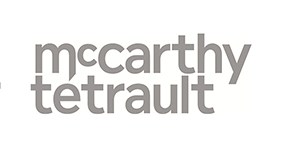After a tumultuous 2020, private equity funds and investment firms are hoping for a more positive outlook in the new year. Lexpert caught up with the team at McCarthy Tétrault to discuss the private equity landscape in 2021, hoping to rely on their expertise in everything from foreign investment to corporate governance to discuss the state and future of the marketplace. Partners from Toronto, New York, and Montréal gave us their thoughts on the most important issues facing the private equity and investment sector.
How do you see ESG issues affecting the private equity industry going forward?
Environmental, social, and governance (ESG) issues cover a very broad agenda, and the weight given by sponsors and other investors to the many categories thereof vary considerably. Common across all platforms, however, is the recognition that ESG has become a key growth strategy with essential tools to better understand and predict financial risks, and opportunities to assess value. Evidence also points to stronger fund performance when stringent ESG adoption is in place.
In 2020, the CEOs of Canada’s eight leading pension funds (with approximately $1.6 trillion in aggregate assets under management) issued their first-ever joint statement to the effect that investors and all companies should provide consistent and complete ESG information to assist with investment decision-making and ESG-risk exposure assessment.
This comes on the heels of a global agreement between numerous investment managers and asset owners (including Canada’s five largest banks and most of Canada’s largest pension funds) to champion the United Nations-supported Principles for Responsible Investment (UNPRI). UNPRI promotes responsible investment across various asset classes, including private equity, and requires each signatory to publicly report on its responsible investment activity.
Going forward, private equity firms will need to continue to adapt. During the fundraising process, sponsors should have an ESG policy and reporting framework (at the fund level and, if applicable, at the portfolio-company level). They will need to respond to non-standardized ESG questionnaires and due diligence investigations addressing how their ESG metrics affect company performance. It is important to also have an ESG-responsible exit that will not compromise stakeholder social principles or objectives. Those who fail to manage ESG issues effectively face increasing legal, reputational, and financial challenges and risks.
What is behind the trend of PE funds taking public technology companies private and will it continue?
Prioritizing growth over profitability, private equity firms have shifted their approach to technology buyouts, listing or taking public technology companies private sooner than they have historically, and at higher valuations. Despite the impact of the pandemic, the privatization trend in the wider technology market has continued, and interest in technology M&As has been very high.
Given the overall increasing value in both public and private technology targets, firms are taking a close look at the growth potential that technology platforms within traditionally non-pure-play technology companies can create. Additional value can be extracted by spinning out existing technology platforms from such portfolio companies.
As stand-alone businesses these platforms can generate value for investors by offering technology services and data strategically to other companies in a sponsor’s portfolio (or more broadly to the public); retooling existing software platforms to focus on industry verticals; or distancing the platform from the host company’s more sensitive products, infrastructure, or data.
Investors will likely continue to creatively position these assets as stand-alone value generators and/or self-sustaining technology providers, which should continue to attract interest not only from private equity investors but also from strategic players.
What vehicles are foreign investors using to invest in Canada and internationally? Is this an emerging pattern or a traditional approach?
For years limited partnerships have been attractive investment vehicles for foreign investors, in Canada and internationally. Unlike a corporation, a limited partnership is not a separate entity, but a registered arrangement between two or more persons carrying on a business in common with a view to profit. Canadian limited partnerships have been popular because they can provide distinct advantages to foreign investors, such as flow-through entity status and ease of formation, and, generally, are governed by well-established, reliable judicial systems.
Relatively new to Canada are special-purpose acquisition companies (SPACs) which enjoyed a record-breaking year in the United States. As of November 2020, there were 182+ U.S. SPAC initial public offerings versus 59 SPAC IPOs in 2019.
The spike was particularly notable among U.S. private equity firms, with numerous sponsors opting for SPACs as an alternative financing vehicle in the wake of the COVID-19 pandemic and related economic uncertainties. SPACs are perfect for periods of market volatility, allowing sponsors to quickly raise funds that are ready for deployment. They have gone from being viewed as a last-resort capital-raising option, to a legitimate investment option.
Unsurprisingly, certain limited partners have raised conflict-of-interest concerns surrounding private equity sponsors raising and managing traditional funds while also utilizing firm resources to launch and manage SPACs, which do not benefit fund limited partners. Concerns also exist about competition for prime deals, and SPAC sponsors overpaying for acquisitions in a rush to close a deal.
Speaking of SPACs, is there a market for them in Canada or has this experiment failed?
Though increasingly popular in the U.S., early Canadian SPAC deals have not seen consistent success. Many early SPACs did not complete deals before their term expired, leaving SPAC founders out-of-pocket for the organizational and operational expenses incurred after capital was returned to investors. The recent explosion of new SPACs in the U.S. represents a mainstreaming of the SPAC structure as a viable alternative to the more arduous IPO process. SPACs have also become a significant tool in dealmakers’ M&A toolkit.
SPACs have seen some recent activity in the Canadian capital markets, but to date none have been launched by Canadian private equity sponsors. With SPAC activity in the U.S. anticipated to continue increasing, it will be interesting to see whether the trend takes off among Canadian private equity sponsors or whether Canadian investors and sponsors will opt to simply participate in the flurry of SPAC activity south of the border.
Find the best private equity lawyers in Canada as ranked by Lexpert here.
How do you anticipate the National Security Review provisions of the Investment Canada Act will affect foreign investment going forward?
The national security review regime applies a very broad range of investments that involve a non-Canadian, regardless of size or whether control was acquired. Certain industries are likely to attract greater scrutiny, such as technology, critical infrastructure, and defence.
The Canadian Government’s Guidelines on the National Security Review of Investments set out a non-exhaustive list of activities that may relate to national security. Although these guidelines provide some insight as to when a national security review may occur, they are not comprehensive, and foreign investors often receive limited transparency during the national security review process.
If the government believes that a transaction may be injurious to national security, the transaction can be blocked, subjected to conditions or, if already implemented, subject to remedies that can include divestiture. From 2012 through 2019, four transactions were blocked and various others were subjected to conditions or were abandoned. The majority of the national security reviews ordered related to investors from China (14 orders).
How can Canadian companies structure new investment capital packages to solve existing liquidity challenges?
The liquidity challenges Canadian companies faced in 2020 are as numerous as the companies themselves. Many sought out capital solutions with third-party debt or equity providers that have the liquidity and appetite for investments in a volatile market. Such solutions are often bespoke and highly negotiated depending on need and the investment mandate of the capital source.
Investments may involve securities, including convertible or non-convertible debt and preferred equity, common shares, warrants or a combination of the foregoing, with a package structured to account for the risk and reward of the individual investment. Of these, convertible preferred stock remains a natural mechanism to allow investors to structurally protect their investment in a downside scenario (by way of priority over common shares in a liquidation or by way of redemption) while enabling participation in the company’s upside success (by way of conversion into common equity).
Key areas of negotiation often focus on composition of the board of directors; veto rights over key matters and general voting rights; covenants regarding operations and financial metrics; and control and protections regarding additional capital issuances. Tax and commercial objectives may be taken into consideration when tailoring the package. Properly structured, the package of governance rights should appropriately balance risk and reward for the company and its investors.
Do you have any other insights on the private equity business landscape in 2021?
Despite the understandably quieter year amidst COVID-related restrictions and uncertainty there are positive indications for the Canadian private equity industry going forward. The mostly pre-pandemic first quarter 2020 investments equalled $17 billion, a first-quarter record high. Deal activity is back on the rise, with 73 deals closed in Q3, versus only 37 in Q2. Several marquee investments closed despite the challenges of the pandemic economy, including AIMCo and KKR’s $2.9 billion acquisition of the Coastal Gaslink Pipeline.
Now that 2021 has arrived, we wonder whether the private equity industry will see a flurry of deal activity and a return to pre-2020 numbers, but there remains uncertainty surrounding the pandemic and how the U.S. will settle into the new federal administration.
The market will likely remain highly dynamic in the coming year, and a number of companies will undoubtedly experience increasing financial pressure. As companies seek solutions in the midst of this stress, we expect that capital will continue to be available from sponsors, provided that parties are creative and flexible in structuring investments to be attentive to the ever-changing circumstances in which we find ourselves.
Contributing Authors: Matthew Cumming, Claire Gowdy, Jake Irwin, Mathieu Laflamme, Conrad Lee, Steve Marshall, Shevaun McGrath, Christian Meighen, Jeremy Pleasant, Debbie Salzberger, Jonathan See, Patrick Shea, and Judy Tian
Read more about the Private Equity Outlook for 2021.





